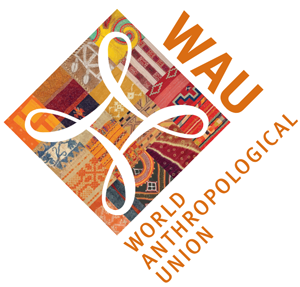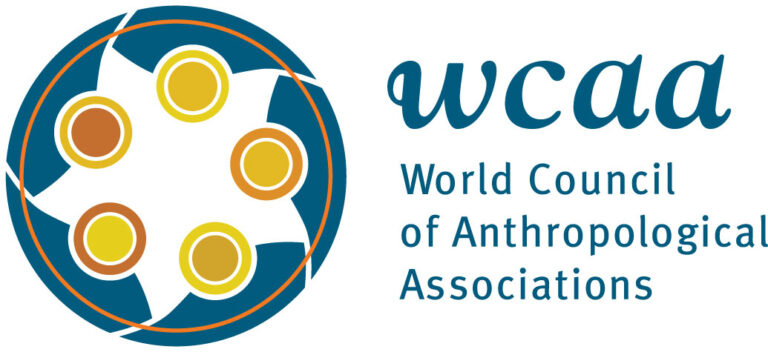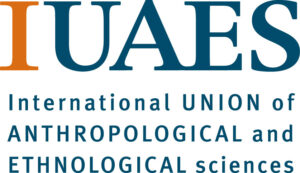Questions for Journal Editors for the Tenth Anniversary of Deja Lu
Laura Stark and Alexandra Schwell, editors of Ethnologia Europaea, Journal of SIEF (The International Society for Ethnology and Folklore), interviewed by Gordon Mathews
Sept. 14, 2021
GM: Explain your journal and what you publish.
LS: we publish mostly research about Europe. Our core three fields are folklore studies, cultural anthropology, and ethnology, and we have a wide range of sister fields. But it needs to be somehow dealing with Europe, however Europe is defined.
AS: It’s important to see that the name Ethnologia Europaea, European Ethnology is also the name of the discipline in many countries: this is a disciplinary journal, a discipline with very blurry boundaries. In large parts of Europe, there is a distinction between social anthropology on the one hand, and ethnology-focused studies on the other. This distinction doesn’t work as it used to, and it’s very good that it doesn’t work as it used to, but it still stands for a disciplinary view of ethnology, which is concerned with Europe and with one’s own society, whereas social and cultural anthropology has a view of things outside one’s own society. It took a very long time for anthropology to discover that actually it has something to do with one’s own society if I go outside and look at other societies. European ethnology on the contrary comes from a tradition which focused mostly on one’s own society. It overdid it with tradition and nationalism and patriotism, and has a quite unfortunate history in that respect.
GM: So ethnology in Europe means the study of your own society and its folkloric traditions?
AS: That’s the tradition that European ethnology comes from; this is how it developed in the 19th century as folklore studies (Volkskunde in the German-speaking tradition). Luckily today we’ve overcome that, but it’s important that we still look at our own societies and our own continent, in a very wide sense. We look at it very critically; it’s a very self-reflexive way of looking at Europe and scrutinizing one’s own position in a globalized world and with all the asymmetries and hierarchies that exist within European societies.
GM: In looking over Ethnologia Europaea it doesn’t appear much different from
anthropology journals.
AS, LS: We have training in anthropology as well as in ethnology/folklore studies;
both of us really represent this huge mixture of disciplines.
GM Can anyone publish in Ethnologia Europaea, even if they are not members of SIEF (the International Society for Ethnology and Folklore), its related organization?
LS: Anybody can publish as long as what they’re writing about fits the purview of our journal. And of course if the piece is well-written and has a point to make. At the academic level, we have taken even PhD students if they have something to say. Yes, we accept only articles in English. We simply don’t have the personnel or the budget for translations at this point. We’re doing the work for free basically; there’s actually three of us–there’s an associate editor—but the three of us are doing this in our free time.
GM: Do some authors say, for example, “I study French ethnology and folklore; why do I have to publish in the imperialistic language of English?”
AS: Obviously there is a discussion about that, although I wouldn’t say that this discussion actually takes place within our journal. There’s no way around it, English is the imperial academic language, and there are a lot of hierarchies and asymmetries that come with that. Many of our authors who come from less privileged countries whose standard of English is not as good have to pay much more money to have their articles proofread. On the other hand, I don’t think it would make much sense if we had the journal in other languages because the point of a journal is to facilitate understanding and discussion, and English is the lingua franca of the academic world, the language that is most accessible to members of the academic community.
GM: The editorial processes you follow—if an article gets sent to you, how do you proceed? How do you find your referees?
LS: I read the article and try to find experts in that field; sometimes they’re not easy to find; sometimes I do Google searches to find them. After we find a reviewer, having them actually say yes is a big challenge.
AS: Absolutely, and I really wonder how journal editors found reviewers before the Internet existed; it’s such a great help to have Google Scholar and other websites, which make it possible to find people who work on something related to the topic of that article. It must have been so hard before because you didn’t know that all these people existed and you just couldn’t contact them, I imagine.
GM: Financing is always a difficult matter with journals. How do you finance Ethnologia Europaea?
LS: Alex and I just came on at the beginning of this year; but the way our funding model has worked is that we apply every two years to the Nordic Council; they have funding for journals that you apply for, and apparently we’ve always gotten it. Between 30 and 40% of our budget comes from that and SIEF makes up the rest, which recently has been a bit of a strain on their budget. Alex, myself and Pilvi, our associate editor, we don’t get paid. But we do pay a production manager, who does a lot of the work in getting the journal issue ready to be published. The production manager has a lot of work, because we work with a platform that is not for the for the uninitiated. Our platform is the Open Library of Humanities. They get funding is through a library consortium, which pays for the platform to exist and to operate. It’s open access: readers don’t have to pay anything, we don’t have to pay anything; authors don’t have to pay anything; anyone from any part of the world can read Ethnologia Europaea for free online.
GM: Yes, without funding it’s extremely difficult to have an open access journal.
LS: The whole funding model, it’s not entirely clear whether, in the long term, it is going to be sustainable or stable. One of the things that we’ve run into with the Open Library of Humanities is a conflict of interest. The platform needs to get their own funding, their own name out there, their brand, while the journal also has to do that: “whose logo is going to be bigger?” That’s unfortunate because we need each other, we are in a symbiotic relationship. I cannot say to you in all honesty that this is the model for the future, because it’s unclear how the future is going to play out for open access journals.
GM: Yes, journal editors who have open access journals say that on the one hand it’s really liberating to have so many readers who can read without paying any money, but on the other hand, it does cost money, and even people as fortunate as you still have to get that funding every year. Have you ever thought of “going over to the devil,” so to speak, in other words, going with Taylor & Francis or Wiley: they would probably pay quite a bit of money for a journal like yours.
LS: I’m sure it has crossed our minds! If a commercial publisher had an open access model that gave us most of the features we have now, we would definitely consider it, especially if there were even small royalties that would help us pay for our production costs.
AS: I’m with Laura on this. The whole academic system relies so much on people doing work for free. I’m on the side of DIY rather than of the big corporations, but on the other hand, how much DIY can you do? If everything goes smoothly, fine, but…
GM: How does submission to your journal work?
LS: When someone submits to our journal, it goes on to the digital platform. The OLH
model says that you’re supposed to do everything via the platform. However, none of us do because the platform is quite clunky.
LS: As for submissions, we need more! Our model until Alex and I took over was that we would have one special themed issue and one open issue with individual articles each year. But we noticed that many potential themed issues are not followed up, and it can really bog us down, where we end up doing the work of the special issue editors because we’ve got a deadline; so we decided that we don’t need to have a special issue each year. But then we need more open issue articles. We need to get the word out there for people in our fields to submit to us. We are marketing ourselves–
GM: This is a good thing for you to say, because I think anybody doing research on Europe, regardless of where they are the world, might say “I should submit to them.”
AS: As Laura said, we just started this year, so we really don’t know if this what we’ve seen so far is a typical year for submissions: there’s a pandemic now.
GM: What I hear from many journal editors is both a desire to be in big citation indexes like SSCI and a disdain for those indexes. How do you feel about this?
AS: For me it’s not important, because my university, and the Education Ministry in Austria, doesn’t ask for that yet. But I have a colleague in Slovenia, and they are very much after that; they really want to see publications that are listed in Scopus. “If you’re not in Scopus, there’s no point for me to publish with you!” I’ve heard. There is no such discourse in Austria or Germany yet, but I’m sure that’s going to come.
LS: In Finland, where I am, it’s been in the middle. We’ve been told that we should be publishing in international journals but that’s enough in our fields right now. But there’s already talk about the different ways of measurement in these different databases. I myself, if I’m thinking about where to publish an article, I’m looking online to see what are the top-ranking journals in my field.
LS: Our publisher, OLH, is quite reluctant to engage with databases that would have increased our citation numbers . We were approached by the MLA, the Modern Language Association, who wanted to include our articles in their database. But OLH refused. It was a matter of who gets the download scores; that was the issue.
GM: What about refereeing? Do you try to get a referee from the same society the author is from?
LS: No: anybody in Europe I’m open to. Alex and I read articles really carefully. We want anybody from Europe who is interested in the topic and has their own expertise. We use two referees per paper, and part of our job is “refereeing the referees.” Yes, we see our role as nursing any reasonably good piece to publishability. We try not to reject if we feel that the author has something interesting to say, but if it’s not yet said very logically or clearly; we try to help the author revise.
GM: What do you do if one referee says reject and the other doesn’t?
AS: We don’t ever ignore a referee because they are the core that we work with, but we don’t think they have the last word. So if we have one very good review and one really bad review, there’s still us who read the text. Even if we’re not experts on the particular topic, we can recognize if somebody has a great idea. It’s up to us to decide whether we take a third reviewer or decide ourselves which way to go. Of course, it depends on the quality of the review as well. If the reviewer really engages with the article and says, “this is where there are flaws and this is what the person did not do, and this is how it could have been better.” If I have a review that simply says “reject, this is bad,” and that’s all, this is not so useful. If a reviewer sends us a really poorly done review, then we may not forward it to the author.
LS: We have reviewer guidelines that reviewers are given; we could then justifiably say, “sorry, we will not take this into consideration because it did not follow our guidelines.”
GM: Now the last topic to explore is that many anthropologists are incensed about Anglo American imperialism in anthropology, with Anglo-American theory looked at as supreme all around the world as perhaps it shouldn’t be. How do you see this?
AS: It’s complicated, I think, and again has to do with the disciplines involved in Europe. I come from Germany, I work in Austria, and the whole German-speaking area is really large in Europe. The German-speaking area has its own ethnology and anthropology market for publications, so there are a lot of people who would very much rely on their own linguistic academic area—you’re self-sufficient and don’t have to recognize anything outside your linguistic area. That’s fine as long as you stay within that area, but it becomes a problem when you send an article outside that, and a reviewer says “this is a really nice topic, but you didn’t recognize the state of the art in the international literature,” which is mostly written in English. I think it’s even more extreme in France, because they really have their own market.
LS: Even Finland, with a population of only 5 million, has its own linguistic world: the Finnish language is what they have been writing in and that’s their comfort zone; they quote Finnish scholars. It’s not until you get to countries that have been colonized by other countries that you get the kickback you are describing. My own research is in Tanzania, so I am aware of that perspective.
GM: I guess, by the nature of your journal you’re not having to deal intensely with new waves of theory coming out of the US and other places. Is there a theoretical basis that people use or is your journal primarily empirical?
AS: It’s empirical. It’s ethnography but not only ethnography; I think it’s important that it’s based on empirical research for most articles. Of course, they have to be theoretically sound, they have to have a theoretical research question; but we are not the journal for elaborate theoretical discussions.
LS: We’re theoretical omnivores. We have lots and lots of theories floating around;
people are writing about many different topics within Europe, and within those topics, there is a great variety of discussions: it’s a diverse world, which makes it interesting.
GM: What’s the single biggest problem that you face as journal editors?
AS: Can I have two? Time and money! I devote on average one to two days working days per week on the journal. We are still new and learning, though, especially with the submissions platform. Maybe there will be the day when everything runs completely smoothly.
LS: I’d say the same. As a professor, I have many other duties, research and teaching and some administration, but I would say that now the journal takes up the majority of my time, because of this learning process. I enjoy it, but it’s very time consuming. Finding reviewers is very tough. We have 16 board members who have now been asked to do one review per year. They’ve done a good job.
LS: This autumn, we need more open submissions for me to feel calm and collected! GM: Let’s do a final blurb for you. Why should people publish with you?
LS: We are very open-minded. We want anything about what you are studying in Europe! If you as the author are willing to work with us, we won’t just drop you: we will be there to help you with whatever issues you have in making the piece publishable.
AS: I second that. We are personal. You may get an automatic email from us, but then you get a personal email as well; you will always know who you’re talking to. We help guide you through the process.
LS: Yes, any anthropological research on Europe we would be happy to receive from you! We are very broadminded!



